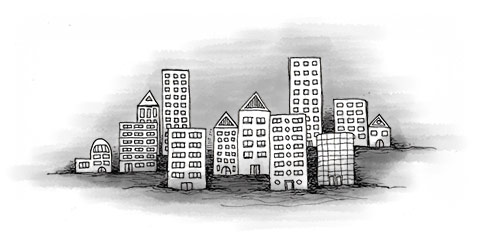Rental contracts in Argentina are generally of two years. If it concerns a commercial rental, the duration of the contract is normally three years. A contract can be for a maximum of ten years. The duration of contracts is covered by Argentinean Law ( Ley 23091).
Besides the duration of the contract, rental agreements also state that if the tenant does not pay, the rental agreement is terminated and the tenant will have to leave. However, tenants do not always leave when asked which causes the owner to go to court and file charges. This can be a long and expensive way to get rid of tenants. In order to prevent any such trouble, a Convenio de Desocupación is often signed at the same time as the rental agreement. This Convenio covers the issues and procedures of reluctance to pay and the leaving the premises. The aim of the convenio is that if conflicts occur the tenant can be evicted easier. If during the rental period the apartment has been damaged beyond the normal tear and wear, the landlord is allowed to deduct damages from the security deposit.
To prevent tenants damaging the property or not fulfilling payment of rent, you might need a third person to stand as a garante which means he/she will guarantee that the tenant will pay the rent. If rent is not paid by the tenant, the landlord can claim the rent at the garante. The garante can after having paid the missing rent claim back the money from the tenant he/she stood bail for, claiming the tenant betrayed him. This can be a long process with uncertain outcomes and directly explains why it is often hard to find a garante.
By law a landlord may not accept advance payments more than 1 month before the tenant occupies the premises. Law also states that a security deposit may not exceed the equivalent of one month’s rent for every year of the contract.
It is not allowed to do any remodelling in the apartment without the landlord’s approval. Subletting is prohibited by Argentinean Law and most contracts will also state this separately.
Rental contracts normally contain the following details:
- Name, nationality and identification of the tenant and landlord
- Address the apartment is located at
- Description of the condition the apartment (and furniture) are in
- A clause stating fines for subletting
- Exact amount of rent (in US$ and/or Ar$) and conditions of payment
- A clause stating fines for not paying rent and the right of the owner to start the eviction procedure
- The period the apartment will be rented for and fines for exceeding the period
- Agreement not to make any adjustments in the premises without the owners permission
- Payment of utility costs and maintenance expenses
- The amount of security deposit and the owner’s right to use the deposit for unpaid costs
- Clause regarding where disputes will be solved.
- Signatures of tenant and owner and the date of contract.

